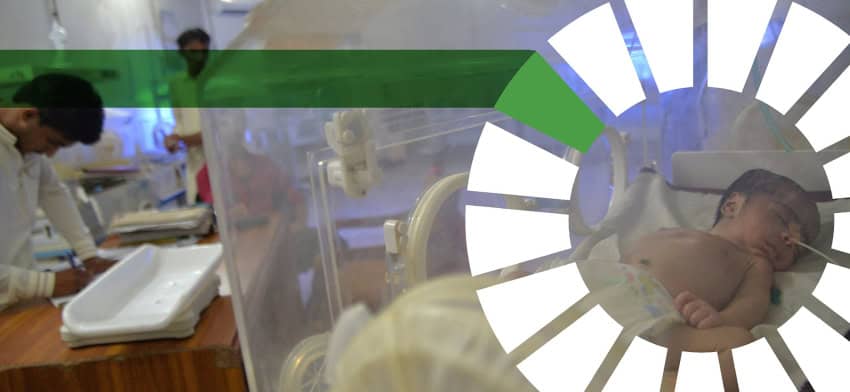Well-established medical services bring about betterment in the health status of the citizens, particularly of the underprivileged who are in the thick of deteriorating health and have limited approach to healthcare.
Additionally, it safeguards the family from the possible calamitous effect of unaffordable medical costs. Improving healthcare facilities will contribute to reducing poverty in developing countries. Ottawa Charter 1968 characterizes the development of health in a way that encompasses public health as a whole.
Compliance with such a definition of health promotes mental and physical welfare of a person that enables him to successfully confront the challenges of an ambient atmosphere of his social and economic life. But the governments must also consider alternative ways such as training unemployed people to combat widespread poverty.
Poor physique, due to diseases or by birth, brings about financial constraints. The family, so affected, has to go through a host of problems. The expenses incurred on medical treatment such as fees, tests, medicines and even transportation costs overburden it. Care of the sick paralyses the family routine and adversely affect its earning capacity. As a result, the family gradually runs into utter poverty. Thus, the consensus is emerging among the concerned that there is a correlation between ill health and poverty. Such views, besides being rational in nature, have also been reinforced and documented through some studies at the international levels like the United Nations Millennium Development Goals and Bangkok Charter for health promotion in a globalized world.
But some object that extensive provision of healthcare facilities burdens the national economy. Multidimensional Poverty Index (MPI) as reported in the economic survey of Pakistan, 2015- 2016, mentioned that 39% of Pakistanis are living in abject poverty, FATA and Baluchistan being the poorest. MPI looks at the salient features of poverty. It focuses on health, education and financial deprivations of the people and recommends massive budgeting provision as a remedy.
However, it must also be admitted that healthy workers serve as a more productive workforce which contributes more to economic growth. Physically and mentally fit individuals can discharge their professional duties more competently. They can work for longer hours and endure the stress of a challenging working environment better. Industrial production can thus be increased due to the availability of medically fit workers.
This enhances export potential as the quality of local goods is improved and their quantity increased. With the money thus earned government can channelize funds to ameliorate public services such as schools, hospitals and parks. These developments improve the living environment of locals and help in the elimination of the inferiority complex.
Impoverishment results in malnutrition among the people. Deficiency in nutrients weakens the human immune system and the body succumbs to the attack of diseases. Medical provisions, alone, fail to ameliorate the ill health of masses in developing countries. Poor segments of society, suffering from such disadvantages, become vulnerable to disabilities both physical and mental.
A state of health, prevalent over a prolonged period of time, throws the poor into dreadful marginalization and perpetual poverty. Asian Development Bank reported in 2002 the inaccessibility of clean water to 17% of urban and 47% of the rural population in Pakistan. People with low income and residents of shantytowns were found more exposed to environmental pollution. The atmosphere around renders the residents vulnerable to water and airborne diseases such as cholera, typhoid, asthma and diarrhoea.
Health issues among the population can be mitigated by improving healthcare. Vaccination campaigns such as the Expanded Program of Immunization in Pakistan can be initiated to counter the spread of epidemics. But in developing countries, such initiatives face considerable opposition due to cultural factors. It is awful to know, through the BBC report, the killing of about 60 polio workers in Pakistan since 2012 at the hands of so-called Islamic extremists.
On the other hand, if the higher authorities remain vigilant and provide proper security to healthcare workers, such campaigns can be made successful. In November 2001, Planning Commission, Government of Pakistan, published an Interim Poverty Reduction Strategy Paper that recommended attention on five major areas for poverty reduction and highlighted the importance of public health in this context. This would lead to the prevention of diseases and lessen the burden on medical services. The government could then use these resources, thus saved, to kick off and finance large scale development projects. These projects would then help generate employment opportunities for locals and lower their economic miseries.
World Bank report has pointed out that one-third of people, from the low and middle-income part of labour class in developing countries, are not equipped with essential skills to get good calibre jobs. Training unemployed individuals would equip them with skills which would make them competent enough to meet the needs of modern market requirements.
Skilled labour is likely to get better jobs and be better paid. Such people will be able to afford better housing facilities and pay for education and healthcare of their families. In Brazil trainees with credentials from certified vocational centres, are paid 10% higher wages as compared with those with simple secondary education. Training develops cognitive, socio-emotional and technical skills that enable the workers to exploit their full potential. Through the introduction of additional social welfare programs, disgraceful trends like beg may also be eliminated from the society which would reduce the social imbalance in the community.
Hence, the provision of medical services will enhance productive capacity and earning ability of indigenous people and ultimately raise their living standards.














